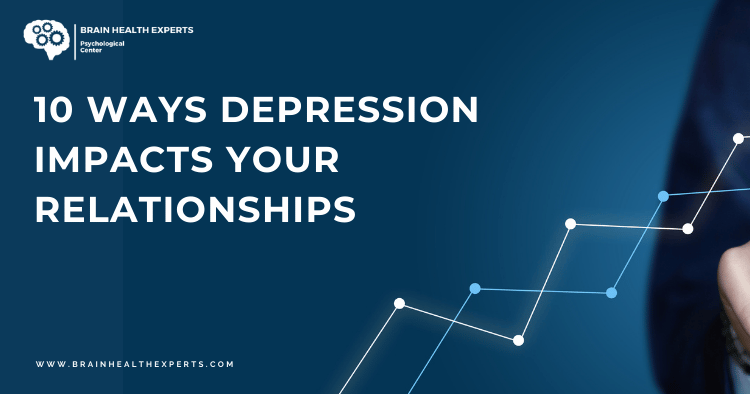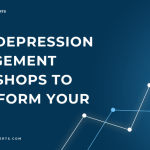Understanding Depression
Depression is more than just feeling sad; it’s a complex mental health condition that can drastically affect every aspect of a person’s life. According to the American Psychiatric Association, symptoms include persistent sadness, loss of interest in activities, fatigue, and difficulty concentrating. Recent studies indicate that depression can also lead to significant changes in relationships, affecting not only the individual’s well-being but also that of their loved ones.
“Understanding the nature of depression is the first step in addressing its impact on relationships. It’s not just a personal struggle; it’s a shared experience.”
Communication Breakdown
Effective communication is the cornerstone of healthy relationships. However, depression can make it challenging for individuals to express their feelings or even engage in conversations. They may feel overwhelmed or unable to articulate what they are going through, leading to misunderstandings and frustration among partners, friends, and family members.
Key Points:
- Avoidance: Individuals may withdraw from conversations to avoid discussing their feelings.
- Misinterpretation: Loved ones may misinterpret silence as disinterest or anger.
- Expressing Needs: Difficulty in expressing needs can lead to unmet expectations.
Tip:
Encourage open dialogues about mental health within your relationships. Establishing a safe space for sharing feelings can ease communication barriers. For more on fostering positive conversations, check out 10 Powerful Techniques to Cultivate a Positive Mindset.
“Creating a safe space for communication can transform misunderstandings into meaningful conversations.”
Emotional Withdrawal
Depression often results in emotional withdrawal, where affected individuals may pull away from those around them. This withdrawal can be confusing to loved ones, who may feel rejected or unvalued. Emotional distance can lead to feelings of loneliness for both parties, further complicating the relationship.
Key Points:
- Reduced Affection: Physical touch and emotional connection may diminish.
- Loss of Interest: Individuals may no longer engage in activities they once enjoyed with loved ones.
- Increased Loneliness: Emotional distance can lead to isolation for both partners.
Tip:
If you are experiencing this withdrawal, consider discussing it with your partner. They may be able to provide support and understanding, helping bridge the emotional gap. Also, explore 10 Positive Thinking Techniques to Reduce Stress for strategies to improve emotional connection.
“Addressing emotional withdrawal openly can lead to mutual understanding and healing.”
Increased Conflict
Depression can heighten irritability and lead to increased conflicts in relationships. Individuals may find themselves easily frustrated or overwhelmed by stressors. This change in temperament can often lead to arguments and strain the bond between partners.
Key Points:
- Heightened Sensitivity: Individuals may become more sensitive to perceived slights or criticisms.
- Unresolved Issues: Pre-existing issues in the relationship can be magnified.
- Negative Cycles: Arguments can create a cycle of negativity, perpetuating feelings of sadness.
Tip:
Practice active listening during conflicts. Being heard can help de-escalate tensions and foster understanding. For more insights on managing stress, consider 10 Effective Stress Management Techniques for Daily Relief.
“Active listening can be a powerful tool to break the cycle of conflict and promote healing.”
Social Isolation
Depression can lead individuals to withdraw not just from their partners but from social circles as well. This social isolation can create a disconnect in relationships and may leave loved ones feeling helpless or frustrated.
Key Points:
- Avoiding Social Events: Individuals may skip gatherings, leading to feelings of exclusion.
- Strain on Friendships: Friends may feel neglected or confused by the sudden changes in behavior.
- Impact on Support Networks: Reduced social interaction can diminish essential support during tough times.
Tip:
Encourage gentle invitations to social activities. Sometimes, just the act of reaching out can help someone feel included and valued. Explore 10 Fun Ways to Foster Positive Thinking in Children for ideas on engaging socially.
“Reaching out can bridge gaps created by isolation and reaffirm connections.”
Changes in Intimacy
Depression can significantly alter physical and emotional intimacy within a relationship. Individuals may struggle with low libido, making them less inclined to engage in sexual activities, which can create tension and feelings of rejection.
Key Points:
- Physical Disconnect: A lack of physical intimacy can lead to feelings of inadequacy.
- Emotional Intimacy: Emotional barriers may prevent partners from connecting on a deeper level.
- Increased Anxiety: Concerns about performance or desirability can exacerbate feelings of depression.
Tip:
Openly discuss your needs and concerns regarding intimacy. Honest conversations can help navigate these changes together. You might also find it helpful to read 10 Ways Positive Thinking Boosts Emotional Well-Being for additional support.
“Honesty about intimacy can pave the way for deeper connections and understanding.”
Support System Strain
While support is crucial during times of depression, it can also be challenging for loved ones to provide the necessary help. Partners may feel overwhelmed or unsure of how to support someone who is struggling, leading to frustration and resentment on both sides.
Key Points:
- Emotional Exhaustion: Constantly supporting someone can lead to caregiver fatigue.
- Role Reversal: The dynamic of the relationship may shift if one partner takes on a caregiving role.
- Need for Boundaries: Establishing boundaries is essential for mental well-being for both partners.
Tip:
Encourage each other to seek external support, whether through therapy or support groups, to help alleviate some of the emotional burden. Consider exploring Top 10 Must-Read Books on Depression for Healing and Hope for resources.
“Establishing boundaries can protect both partners’ mental health and foster a healthier dynamic.”
Guilt and Shame
Individuals experiencing depression often grapple with feelings of guilt and shame, believing they are a burden to their loved ones. This internal struggle can lead to further withdrawal, making it difficult for relationships to thrive.
Key Points:
- Feeling Inadequate: Individuals may feel they are not meeting their partner’s needs.
- Fear of Judgment: Concerns about being judged can prevent open discussions about feelings.
- Cycle of Shame: This can create a cycle where individuals withdraw further, exacerbating feelings of loneliness.
Tip:
Reassure your loved one that their feelings are valid and that seeking help is a sign of strength, not weakness. For more understanding on emotional challenges, check out Understanding Emotional Intelligence.
“Validating feelings of guilt and shame can help break the cycle of withdrawal and promote healing.”
Impact on Parenting
Depression can also affect parenting dynamics. Parents suffering from depression may find it challenging to engage with their children, which can impact the parent-child relationship and the family unit as a whole.
Key Points:
- Reduced Engagement: Parents may struggle to participate in activities with their children.
- Emotional Availability: Being emotionally present can be difficult during depressive episodes.
- Impact on Children: Children may sense their parent’s emotional withdrawal, leading to confusion.
Tip:
If you’re a parent dealing with depression, seek professional help. Therapy can provide you with strategies to enhance your emotional availability for your children. Also, consider 10 Proven Techniques to Boost Your Self-Esteem Today for self-care.
“Seeking help for your mental health can positively influence your parenting and strengthen family bonds.”
Seeking Help Together
The final and perhaps most crucial point is that seeking help together can significantly improve relationships impacted by depression. This can involve individual therapy, couples therapy, or joining support groups.
Key Points:
- Therapeutic Support: Professional guidance can help both partners understand each other better.
- Shared Goals: Working together towards





